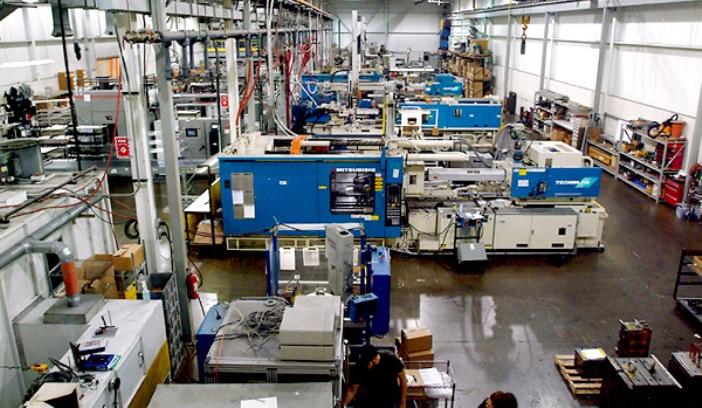Nigeria has emerged as the third-largest manufacturing hub in Africa, rallying behind South Africa and Egypt in a 2025 ranking by The African Exponent.
The recognition marks a major milestone in Nigeria’s industrial journey, resulting in the country’s growing capacity to meet domestic demand and become a major player in the continental supply chain.
The list, which focused on the size and influence of manufacturing companies across the continent, cites Nigeria’s dominance in cement production, food processing, and consumer goods as key drivers of its position.
According to the ranking, Nigeria is now home to some of the continent’s industrial conglomerates, with companies like Dangote Group and BUA Group leading the charge. This recognition is not just about scale but also about the strategic positioning of these firms in essential sectors.
Dangote Refinery, described in the ranking as “one of the largest in the world,” is a symbol of this ambition, combining massive output capacity with local job creation and regional supply potential.
The country’s rise is further explained in a recent feature by Business Elites Africa, which attributes Nigeria’s industrial momentum to a mix of domestic market strength, targeted investment, and policy support. “Nigeria has carved out a place near the top in the race to build Africa’s industrial future,” the article stated.
Central to this growth is Nigeria’s mammoth population, now over 200 million, which provides both a labour pool and a large domestic consumer market.
The country’s industrial backbone is built on a few powerful players whose operations span cement, refining, agro-processing, and packaged goods. “Companies like Dangote Group and BUA Group have made massive investments in industries such as cement, oil refining, consumer goods, and food processing,” Business Elites Africa reported.
These companies have expanded capacity, created thousands of jobs, and driven local sourcing of raw materials, spurring the growth of secondary industries and boosting supply chains.
Nigeria’s manufacturing ecosystem also benefits from multinational presence, with firms like Nestlé Nigeria and Unilever Nigeria anchoring sectors such as beverages and household products.
These companies, along with local SMEs, are clustered in industrial zones and free trade enclaves that offer tax incentives, duty-free imports, and access to ports.
“Nigeria’s Free Trade Zones, overseen by NEPZA, have attracted over $26 billion in FDI and created around 400,000 jobs,” the report highlighted. Such zones, including those in Lekki and Calabar, have become hotbeds for new industrial investments.
Amidst this progress, challenges abound. Business Elites Africa cautions that Nigeria’s manufacturing sector is constrained by chronic electricity shortages, rising input costs, and infrastructural gaps that increase production costs.
Many manufacturers still rely heavily on diesel-powered generators, which inflate operating expenses. These obstacles threaten to slow the pace of growth if not addressed through sustained public-sector reforms.
Nevertheless, Nigeria’s industrial contribution to GDP has seen remarkable growth. In 2023, manufacturing accounted for 13.5% of the GDP, up from 7% in 2015, reflecting deeper integration of manufacturing into the economy.
It also positions Nigeria to become a key beneficiary of the African Continental Free Trade Area (AfCFTA), which aims to boost intra-African trade by reducing tariffs and simplifying border procedures.
Geographical dynamics are also beginning to shift in Nigeria’s favour. Regional neighbours like Ghana, Benin, and Togo increasingly depend on Nigerian goods from cement to processed foods, thanks to lower transportation costs and shared cultural markets.
With the expected ramp-up in refinery output, Nigeria could also become a key energy supplier to the region, reducing reliance on imports from Asia and Europe. “Nigeria’s large-scale investments position it as a manufacturing and distribution hub for West Africa.”
Experts argue that sustaining Nigeria’s rise will require deliberate investment in infrastructure, consistent regulatory policies, and increased support for small and medium enterprises.
The government’s ability to improve power supply and stabilise monetary policy will be critical to keeping investors confident and competitive. Enhancing access to affordable credit and encouraging technology adoption will also play a pivotal role in scaling production efficiency.
Nigeria’s rise to third place in Africa’s manufacturing landscape is a reflection of coordinated ambition between government policy and private-sector resilience. If the current momentum is sustained and key barriers are dismantled, the country may not just hold its place in the top three—it could soon challenge for the very top spot.
South Africa continues to lead the rankings, thanks to its well-established automotive, chemical, and steel industries. Egypt follows closely in second place, buoyed by strong performance in textiles, construction materials, and pharmaceuticals.
Nigeria has emerged as the third-largest manufacturing hub in Africa, following South Africa and Egypt, as noted in the 2025 ranking by The African Exponent. This achievement highlights Nigeria's significant industrial progress, marked by its capacity to meet domestic demand and play a significant role in the continental supply chain. Key sectors contributing to this growth include cement production, food processing, and consumer goods, driven by major industrial players like the Dangote Group and BUA Group. The Dangote Refinery, one of the largest globally, epitomizes Nigeria's ambitions with its robust capacity and job-creation prospects.
The country's manufacturing sector benefits from a combination of its massive population, strategic investments, favorable policy support, and the presence of multinationals like Nestlé Nigeria and Unilever Nigeria. Additionally, industrial zones and Free Trade Zones, such as Lekki and Calabar, have attracted significant foreign direct investment and job creation. However, challenges like electricity shortages, high input costs, and infrastructural deficits remain and must be addressed to maintain growth momentum.
Nigeria's industrial sector contributes a growing proportion to its GDP, increasing from 7% in 2015 to 13.5% in 2023. Furthermore, its strategic position positions it well to benefit from the African Continental Free Trade Area (AfCFTA) and supply neighboring countries with essential goods efficiently. To sustain and advance its position, Nigeria will need continued infrastructure investment, consistent regulation, and support for SMEs. Improving power supply and monetary stability, along with enhancing credit access and technology use, will prove crucial in securing its place in Africa's top manufacturing rankings.






